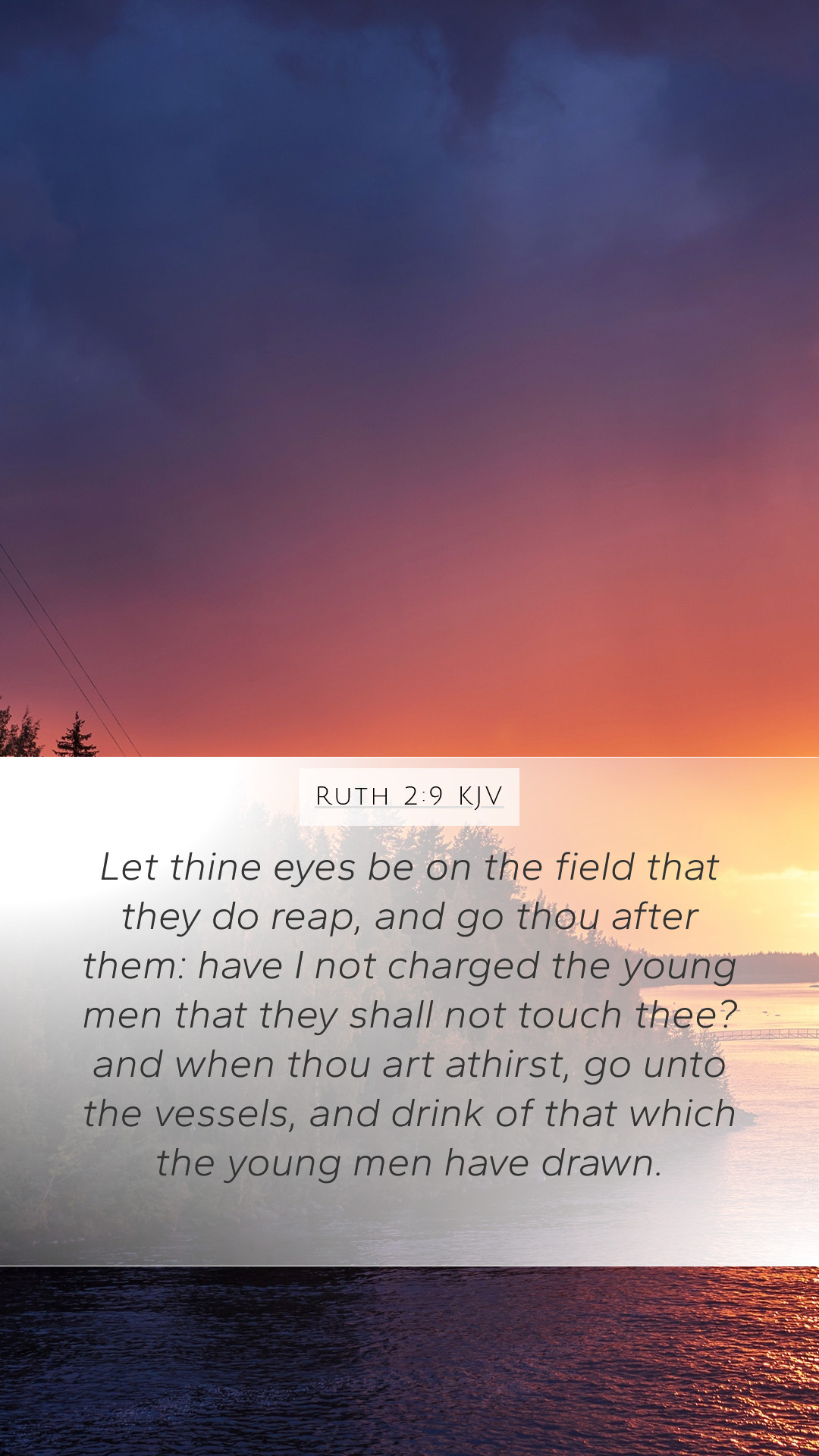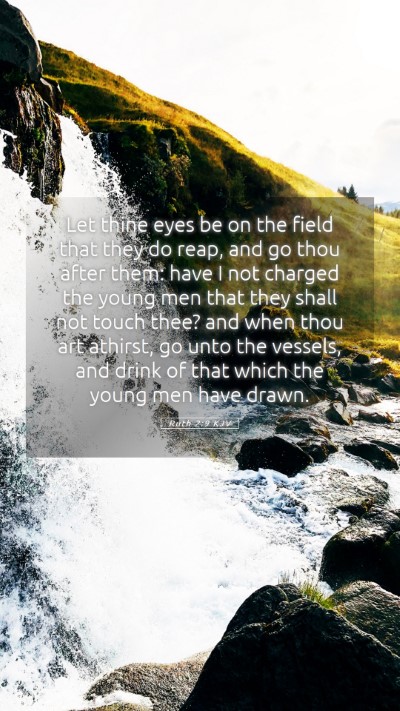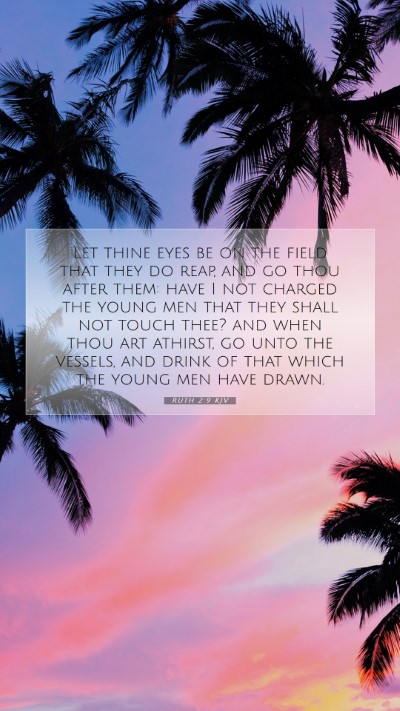Old Testament
Genesis Exodus Leviticus Numbers Deuteronomy Joshua Judges Ruth 1 Samuel 2 Samuel 1 Kings 2 Kings 1 Chronicles 2 Chronicles Ezra Nehemiah Esther Job Psalms Proverbs Ecclesiastes Song of Solomon Isaiah Jeremiah Lamentations Ezekiel Daniel Hosea Joel Amos Obadiah Jonah Micah Nahum Habakkuk Zephaniah Haggai Zechariah MalachiRuth 2:9 Meaning
What is the meaning of Ruth 2:9?
Let thine eyes be on the field that they do reap, and go thou after them: have I not charged the young men that they shall not touch thee? and when thou art athirst, go unto the vessels, and drink of that which the young men have drawn.
Ruth 2:9 Bible Verse Meaning
Bible Verse Commentary on Ruth 2:9
Ruth 2:9 states: "Let your eyes be on the field that they reap, and go after them. Have I not commanded the young men not to touch you? And when you are thirsty, go to the vessels and drink from what the young men have drawn."
The verse encapsulates significant themes of protection, provision, and God's providence. In understanding this scripture, we draw rich insights from public domain commentaries that illuminate its meaning.
Bible Verse Meanings and Interpretations
This passage occurs during Ruth's gleaning in Boaz's field. The directive given to Ruth showcases Boaz's protective nature towards her as a gleaner and his kindness as a kinsman redeemer. Below are insights from various commentaries:
-
Matthew Henry's Commentary:
Henry emphasizes the importance of Boaz's care for Ruth, noting that he not only observes her labor but also instructs his young men to ensure her safety. He highlights the cultural context where gleaners were often vulnerable, and Boaz's provision was a testament to God's providence.
-
Albert Barnes' Notes:
Barnes interprets Boaz's invitation to Ruth as a symbolic gesture of acceptance. He points out that Boaz commands the young men to refrain from harming Ruth, indicating a deeper moral obligation tied to the Jewish laws of kindness and benevolence towards the poor and vulnerable.
-
Adam Clarke's Commentary:
Clarke provides a detailed understanding of the gleaning culture in Israel. He asserts that Boaz's instructions showcase both his leadership qualities and his role as a redeemer. He also emphasizes Ruth's status and dignity through Boaz's respectful commands, reflecting God's overarching care for those in need.
Understanding Scripture: Themes and Applications
This verse not only provides a historical account but also serves as a rich source for modern Bible study insights:
-
The Principle of Provision:
The mention of the reaping fields symbolizes divine provision. Just as Ruth was provided for, believers are assured that God cares for their needs.
-
Protection of Vulnerable Individuals:
Boaz’s instructions reflect God’s heart for the marginalized. In today’s context, Christians are called to extend love and protection to those who are vulnerable in society.
-
Courage and Faithfulness:
Ruth's dedication to gleaning illustrates her faith and determination. Her actions speak volumes about trust in God’s provision and can encourage believers to remain steadfast in faith.
Significance of Ruth 2:9 in Bible Study
When delving into this verse, study groups can explore several relevant topics:
- Understanding the role of women in biblical narratives.
- Insights on God's providence illustrated through Old Testament stories.
- Comparative study of other instances of gleaning and provision in Scripture.
Related Cross References
- Leviticus 19:9-10: Discusses gleaning laws and God’s command to care for the poor.
- Deuteronomy 24:19: Another reference to the practice of leaving the corners of fields for the needy.
- Proverbs 22:22-23: Highlights the Lord’s defense of the oppressed and the importance of social justice.
Application in Daily Life
In applying the principles found in Ruth 2:9, believers are encouraged to consider:
- How can we show kindness and protection to those around us?
- What steps can we take to ensure that we are being good stewards of what God has provided?
- In what ways can we emulate Ruth’s faith and courage in our daily decisions?


